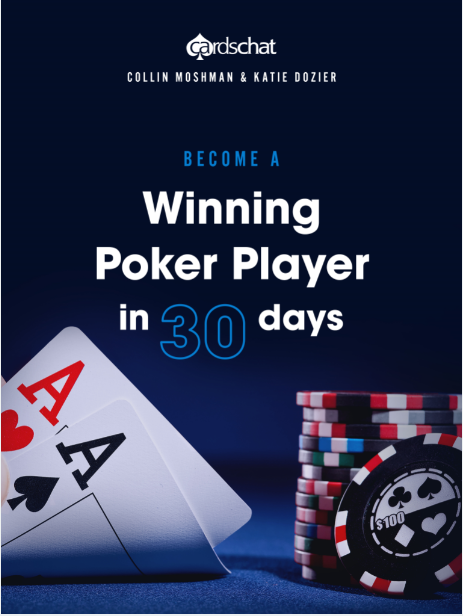Debi
Forum Admin
Administrator
I was so excited to see this Playing the Small Blind lesson! It is such a tough position to play from.
If you have not yet read Day 19 and watched the video for Day 19 - take a few minutes now to do that and then come back here to discuss it:
Playing the Small Blind
I have probably been folding too wide from the small blind. I love it when both Collin and Katie are in the videos - they are great together! Let's talk about playing the small blind and ask Katie and Collin some questions about it.


If you have not yet read Day 19 and watched the video for Day 19 - take a few minutes now to do that and then come back here to discuss it:
Playing the Small Blind
I have probably been folding too wide from the small blind. I love it when both Collin and Katie are in the videos - they are great together! Let's talk about playing the small blind and ask Katie and Collin some questions about it.


Last edited:

















